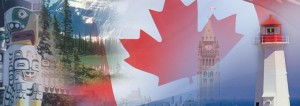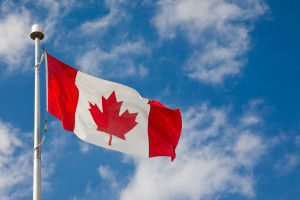 Canada, known for its vast landscapes, cultural mosaic, and inclusive spirit, boasts a rich and diverse heritage that reflects the unique blend of indigenous traditions and immigrant influences. From the majestic Rockies to the picturesque coastlines, Canada’s natural beauty is rivaled only by its vibrant multicultural communities and rich historical tapestry.
Canada, known for its vast landscapes, cultural mosaic, and inclusive spirit, boasts a rich and diverse heritage that reflects the unique blend of indigenous traditions and immigrant influences. From the majestic Rockies to the picturesque coastlines, Canada’s natural beauty is rivaled only by its vibrant multicultural communities and rich historical tapestry.
At the heart of Canadian heritage is the Indigenous Peoples who have inhabited these lands for millennia. Their traditions, languages, and art forms are deeply rooted in the Canadian landscape, contributing to the country’s identity and providing a foundation for cultural exchange and understanding.
Canada’s history is marked by waves of immigration, with people from all corners of the globe making their home in this vast land. From European settlers to Asian immigrants, each group has brought its own traditions, customs, and cuisine, enriching the Canadian mosaic and contributing to its diversity.
One of the hallmarks of Canadian heritage is its commitment to multiculturalism and inclusivity. Canada prides itself on being a welcoming and tolerant society, where people of different backgrounds can coexist harmoniously and celebrate their cultural heritage. This commitment to diversity is reflected in Canada’s policies and institutions, making it a beacon of hope for people around the world seeking a better life.
Canada’s cultural heritage is also expressed through its arts and literature. Canadian writers, artists, and musicians draw inspiration from the country’s landscapes, history, and people, creating works that capture the Canadian experience and resonate with audiences both at home and abroad. From the iconic Group of Seven painters to celebrated authors like Margaret Atwood and Alice Munro, Canadian artists have made significant contributions to the global cultural landscape.
In addition to its cultural heritage, Canada is also known for its commitment to social justice and human rights. Canadians take pride in their country’s reputation as a champion of democracy, equality, and freedom, and strive to uphold these values in their daily lives. From the fight for LGBTQ2+ rights to the reconciliation with Indigenous Peoples, Canada continues to work towards building a more inclusive and equitable society for all.
As Canada celebrates its heritage, it is important to recognize the challenges and complexities that come with it. The country’s history is not without blemishes, including the legacy of colonialism, systemic racism, and social inequality. However, Canada’s willingness to confront these issues and work towards reconciliation and justice is a testament to its resilience and commitment to progress.
In conclusion, Canada’s heritage is a tapestry of diverse cultures, traditions, and experiences that contribute to the country’s unique identity. From its Indigenous roots to its multicultural present, Canada continues to embrace its heritage with pride and openness, celebrating the richness and diversity that define the Canadian experience.
 Nature’s Symphony: A Love Affair with the Outdoors
Nature’s Symphony: A Love Affair with the Outdoors





